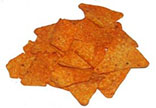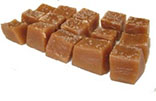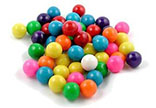
Now that you have your braces, how do you take care of them? It's important for you to know how to properly take care of your braces throughout your entire orthodontic treatment.
Don't worry, you'll be eating popcorn and snacking on potato chips again in no time! However, before you can start enjoying some of the treats you love, you will need to take special care to avoid any foods that could damage your new appliances.
careful orthodontic patient can eat almost any food and not damage his/her appliances. Common sense should dictate what you should or shouldn’t eat during your orthodontic treatment. However, these types of food may cause trouble: hard foods, sticky foods, and foods high in sugar content.
Whole fruits and vegetables such as apples, carrots, and corn on the cob should be cooked or cut into small pieces and eaten carefully.
Do not chew on pens & pencils: a favourite exam time food - these break everything!






The first few days following appliance placement, and after adjustments, there may be some discomfort or soreness. The teeth may feel tender when biting OR chewing and may be slightly mobile. This is perfectly normal for patients who have just gotten their braces put on, and we promise your mouth will not be sore forever! A softer diet is advisable during this brief period.
It is also not uncommon for your lips, cheeks, and tongue to become irritated for one to two weeks as they toughen and become used to the braces. If these symptoms arise, place a small piece of softened wax (which will be provided) over the offending part of the appliance. If the pain is more severe you can also try taking a pain reliever. If the irritation persists, please notify our office
If your teeth begin feeling a little loose during treatment, don't worry; this is normal! Your braces must first loosen your teeth in order to move them into the right position. Once your teeth have been repositioned, they will firm back up again.
You can temporarily fix the loose wire by using the back of a spoon or the eraser end of a pencil to carefully and gently push the wire back into place. If the loose wire is causing irritation to your lips or cheeks, put wax or a wet cotton ball over the broken wire to relieve the pain.
If any part of your appliance becomes loose, broken or deformed between visits, please inform the office as soon as possible so that we can schedule an extra appointment, or lengthen your existing appointment to make the repairs needed. The accompanying diagram will help you to identify the problem when calling our office. If any piece of your appliance comes off, be sure to save it and bring it back in to the office with you.
Repeated breakage of appliances is usually the result of improper care or abuse of the appliance, and will adversely affect the course of treatment and the final result. Damaged appliances can increase the length of your treatment process, so be sure to take care of all your appliances. Your teeth and jaw can only move into their correct positions if you consistently wear the rubber bands, headgear, retainer, or other appliances prescribed by your doctor.
Click here to read more anout the proper care of your appliances
In most cases there is no reason why normal activities (music, sports, etc.) cannot continue during orthodontic treatment. If you are in doubt please don’t hesitate to ask us.
We would ask that caution be exercised in the wearing of certain appliances. For example, a headgear should not be worn while engaged in sports or ‘horseplay’. Also, removable intra-oral appliances (retainers, bite plates, etc.) should not be worn while swimming. We want to avoid damage to the appliances, but more importantly, we don’t want our patients accidentally hurt. Please be certain that protective equipment is worn during participation in contact sports such as hockey or football. This includes wearing a suitable mouth guard.
In case of a sports emergency, be sure to immediately check your mouth and your appliance for any damage that may have occurred. If you notice any loose teeth, or if your appliance has been damaged, please contact our office right away. You can temporarily relieve the discomfort with wax or by rinsing your mouth with warm saltwater.